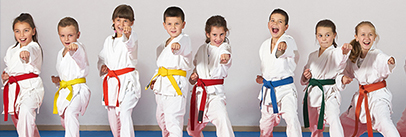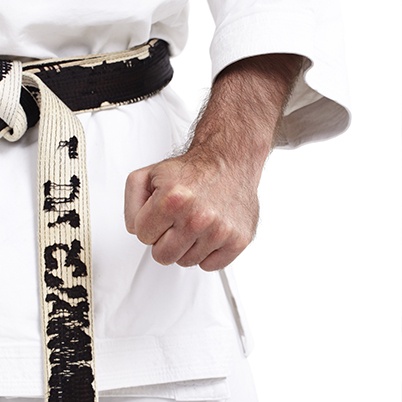World Champion in 2004 (-70 kg), now JKS (Japan Karate Shoto-Renmei) instructor at the Tokyo Honbu dojo, Shinji Nagaki was in France for a seminar. The student of Masao Kagawa, 9th Dan, gives us his feeling about his discipline, the Olympic Games and tells us about his karate experience.
By Fournier Florian
Photo : D.R
Student of Masao Kagawa, Shinji Nagaki, 5th Dan JKS, was one of the first to bring JKS to the world highest level. Initially trained by his father Mitsuru Nagaki, 8th Dan, nine times JKA national champion of kata (from 1991 to 1999) and three times JKA World champion in Kumite and Kata (1994, 1998 and 1999), the 2004 World champion (-70 kg) now travels all over the world to share his knowledge. At 35 years old, he is a generous and enthusiastic Sensei with a great sense of pedagogy.
Created in 2000 by Asai Sensei, JKS is a direct branch of Gishin Funakoshi Karate. This evolution proposed by Asaï Senseï involves a Karate Shotokan where the rotations are more numerous, with a total control of the body. It is a form of karate that offers a possibility of longer practice and adapted to all. Taking the head of the branch after Asai Sensei's death in 2006, Masao Kagawa, thanks to his abilities, opened the Japan national team’s doors to the JKS karatekas.
At present, eight members of the national team are instructors at the Tokyo Honbu Dojo : Koji Arimoto, the 2012 team kata World champion, Daisuke Watanabe, Shohei Toyama, Hideyoshi Kagawa, Kayo Someya, the 2012 World champion in - 68 kg, Mayumi Someya, Saori Okamoto and Natsumi Kawamura.
How is the Olympic Karate seen in Japan ? Has it changed the way of training ?
It's a wonderful news. The Olympics are a dream for everyone. It means the ultimate recognition of your work. Seeing Karate finally recognized by "the world of sports" is a fulfillment. In Japan, more and more people start to practice Karate since this announcement (in August 2016). "We" become more and more popular, whether at the practitioners, media or partners’ level. The Olympic Games will be a real showcase to discover our art. And I can tell you that we are very motivated to play these first Karate Olympics in Tokyo.
Did you feel like coming back to competition in order to participate to the Olympics ?
It crossed my mind but I would have preferred that happens ten years ago when I was at the top of my career. The Olympics is an unbelievable motivation but reason has put me back on the ground. At 35 years old, my career is over. I prefer to devote myself to teaching, to my son and my family.
Nevertheless, you're still training...
Five days a week, three hours a day for my personal training, which also includes the one we receive from the senior instructors of the Honbu dojo. To these three hours, I must add the classes that I give in the Honbu and sometimes at the Teikyo University.
Do you teach only Kumite ?
I do not give a specific education. My teaching is global. I try, as I learned it, to first pass on the basics. Then, after the Kihon, when my students worked well, we practice either kata or kumite. Sometimes, I only do either a Kata or a Kumite class but that’s very rare. For an one-hour session, I usually do 30 minutes of Kihon. We must never forget that this is the basics of karate. To be a good karateka, you must constantly work on your basics. Perfection is never reached.
What do you think of karate students around the world, especially in France ?
As an international JKS instructor, I travel a lot and it is a pleasure to meet all these karatekas. Teaching in Japan and abroad is totally different. Sometimes, the language barrier intimidates me a bit, but karate people's will and involvement remove that blockage. In France, the level is good and I find karatekas particularly focused and attentive.
Karate is a family tradition for you. How was it to train at home ?
My father made me work the basics. We were lucky to have a Dojo at home. I was doing hours and hours of Kihon. He adjusted my positions and made me repeat blocks, punches, kicks... It’s unbelievable how many Gedan Barai, Oi Tsuki and some other techniques that I could do !
I remember that I learned very early the 26 Shotokan katas. At 8 years old, I already knew Unsu. All this technical work done with my father surely allowed me to be World champion and to get the level that I currently have.
Why did you choose to compete in Kumite ?
I like the confrontation and the challenge represented by the Kumite. I quickly understood that technique was essential but I missed some physical confrontation. As I was not very tall, I remembered that the idea of being able to beat a someone motivated me. Then, considering my results, I focused on Kumite. But I never forget to work the basics.
Will your son be a great karateka like his grandfather and his father ?
I hope, karate is a tradition in my family. My father is a great Sensei, my mom also practices and even my sisters. So, I think my son will follow the path and I hope he will be better than us. Deep down, I want him to be Olympic champion. But we will have to wait a little... He is only 3 years old.
What are your coming projects in Karate ?
I will soon open my Dojo in Yokohama. I wish to open several of them and delegate teaching to the young instructors of the Honbu dojo (Arimoto Sensei, Toyama Sensei...).





